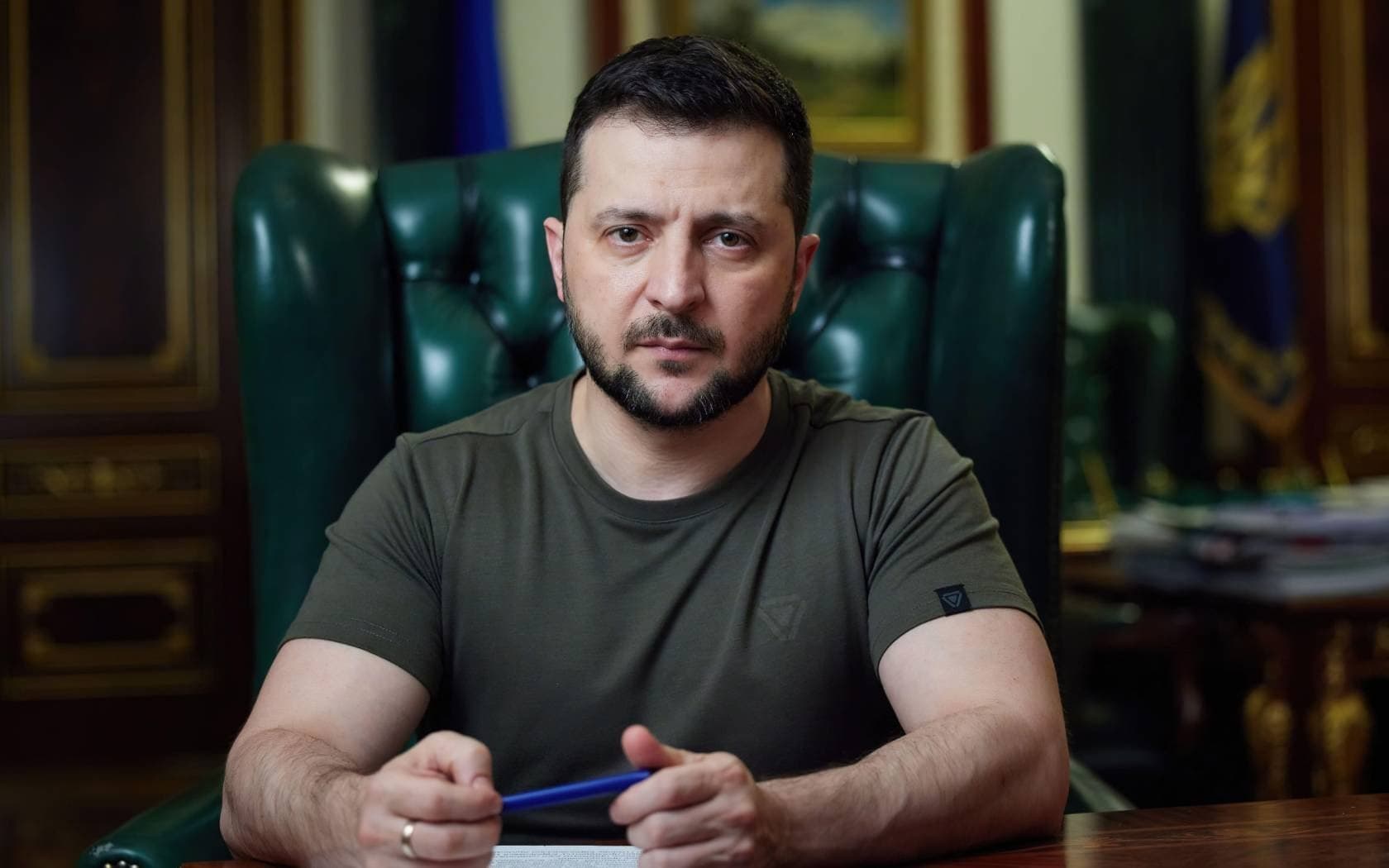Ukrainian President Volodymyr Zelensky: Russia Must Not Receive Any Reward for This War
In a stark reaffirmation of Ukraine"s stance against Russian aggression, President Volodymyr Zelensky declared that Russia should not be rewarded for its ongoing military campaign in Ukraine. The statement, made during a recent press conference, underscores Ukraine"s determination to resist any form of compromise that could undermine its sovereignty and the fundamental principles of international law.
Background & Context
The conflict between Ukraine and Russia, which began in 2014 with the annexation of Crimea, has escalated significantly over the past year, particularly following Russia"s full-scale invasion in February 2022. This invasion has resulted in widespread devastation, loss of life, and a humanitarian crisis that has drawn global condemnation. Zelensky"s comment comes at a crucial time when discussions about peace negotiations and potential resolutions are intensifying amid ongoing military confrontations.
Internationally, the response to the conflict has been marked by unprecedented sanctions against Russia and substantial military and humanitarian aid to Ukraine from Western nations. However, these responses have also led to debates about the long-term implications of these actions, particularly concerning the potential for diplomatic negotiations. Zelensky"s insistence that Russia should not be rewarded is a clear message that any resolution must prioritize Ukraine"s territorial integrity and the principles of justice.
Key Developments
During the press conference, Zelensky emphasized that a peace agreement should not come at the cost of Ukraine"s sovereignty. "We cannot allow Russia to emerge from this conflict with any gains," he stated, highlighting the importance of holding Russia accountable for its actions. The Ukrainian president"s remarks resonate with the sentiments of many Ukrainians who have suffered the direct consequences of the war, from displaced families to economic instability.
Furthermore, Zelensky"s comments come ahead of a high-stakes meeting involving European leaders and U.S. officials. As previously reported, this meeting aims to align strategies for continued support to Ukraine and to discuss the implications of Russia"s actions in a broader geopolitical context. The stakes are high, as many nations grapple with the balance between providing military aid and pursuing diplomatic avenues to end the conflict.
Broader Impact
The implications of Zelensky"s statement extend beyond Ukraine"s borders. Analysts suggest that a failure to hold Russia accountable could embolden the Kremlin to pursue further aggressive actions, not only in Ukraine but potentially in other regions as well. This perspective aligns with historical precedents, where appeasement has often led to escalated conflicts. The sentiment echoes recent developments in international politics, where nations are increasingly wary of negotiating with aggressors without stringent conditions.
Moreover, Zelensky"s determination is reflective of the broader Ukrainian national sentiment. Public opinion polls indicate a strong desire among Ukrainians to see the war concluded on terms that ensure lasting peace and security. This public stance complicates any potential negotiations, as leaders must weigh the will of their citizens against international diplomatic pressures.
What"s Next
Looking ahead, the path to resolution remains fraught with challenges. As military operations continue, both sides are likely to face pressure from their respective allies regarding the terms of potential negotiations. Ukraine will continue to seek increased military support from Western nations, while also advocating for international legal actions against Russian officials for war crimes.
Additionally, the upcoming meetings involving European leaders and U.S. officials will likely focus on strengthening alliances and refining strategies for supporting Ukraine. The outcomes of these discussions could significantly influence the trajectory of the conflict and the international community"s approach to dealing with Russia. As the situation evolves, all eyes will be on Ukraine"s leadership to see how they navigate these complex dynamics in pursuit of their national interests.
For more insights on the political landscape surrounding this conflict, see our recent developments regarding global political reactions to similar situations.



![[Video] Gunfire between Iraqi security forces and Sadr militias in Baghdad](/_next/image?url=%2Fapi%2Fimage%2Fthumbnails%2Fthumbnail-1768343508874-4redb-thumbnail.jpg&w=3840&q=75)
